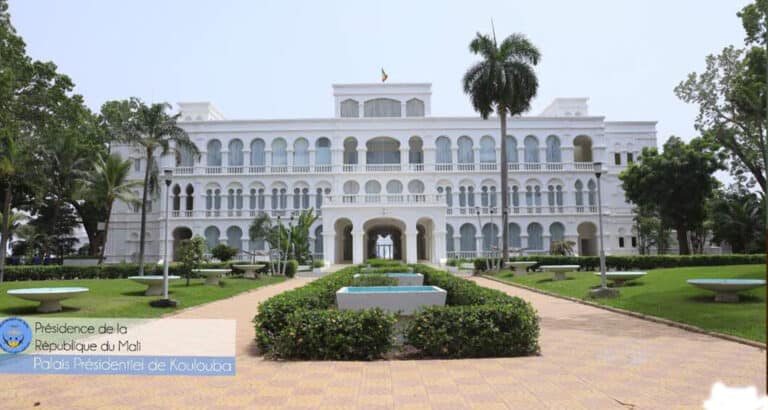Version Française ici – It would be a dream come true for international allies and especially NGOs advocating for women’s right if a woman becomes the president of Mali; even if it is just during a one-year transition.
The fate of Mali seems to be hanging on the decision that the National Committee for the Salvation of the People (CNSP) will make as of who will lead the transition. Even though international actors such as ECOWAS wants it as short as possible, most Malians wants it to take the time it needs to create a better climate which they hope will bring the so longed for change. Meanwhile people are speculating both on social media and offline as of who will be the President or the Prime Minister. Some people, men and women alike, are putting forth the idea that if a woman lead the country will be better off, claiming women need a chance and also, they are good leaders.
I believe it will be good to have a woman lead the country. But unfortunately, this might be impossible in a country were people still believe women are born to be under men and lead by them. Also, even if a woman happens to lead, unfortunately, it might be the same scenario as of Mali’s so-called democracy: the status quo for women will remain unchanged as only the elite and well-off women will be involved in leading the country, especially those above 45.
Religious leaders and the ubiquitous jihad against women
Let’s look at possible barriers to women accessing the supreme authority of the country. The first and foremost opponent might be Dicko and his people, the fervent religious figure of the movement which led to the overthrowing of IBK. Nobody ignores what their views, perception, or the esteem they have for women. Unfortunately, they exactly represent the voice of majority of Malian women and men. This belief is that women should be followers and never leaders; hence you will hear people say “a woman president in Mali? Never!”. Considering the religious scripture, they read and interpret, one may understand where the opposition comes from. Paradoxically, even if they claim women are respected in Islam, their scripture never mentioned a women prophet of messenger, rather they are always here, like were Kadja, Aicha and Fatouma, to support the male leadership.
Plus, let’s remember, Dicko, seems to be the face of all the stubbornness against any law or legislation which attempt to change such dynamic, a proof is his opposition and victory, against the family code in 2009, where both men and women would have been same rights, such as being leaders of the household. So, as long as Dicko will have a weight in the political arena, women will just remain in the back site, like his movement testify of it. In fact, only Kadiatou Sow– a political figure of the old generation the youth want away from power- had the legitimacy to be a leader the rest of the women were just among the million protestors.
Inequality and women’s representativity
It is to be reminded that Mali is a great signatory of conventions and international laws but its national laws are very contradictory of its international engagement, a proof is the Convention on the Elimination of All Forms of Discrimination Against Women and the Convention on the Rights of Children. So, if by any chance Religious leaders, preponderant defendant of patriarchy, fail to prevent a woman from leading the country, the questions might still be: is she really leading? For whom? What women gain from that?
I believe that even if a woman become the president the daily lives of everyday Malian women may remain the same. This is not only because most women political leaders do not have women’s empowerment and advocacy against inequality as their priority. Rather their political engagement seems to mirror the ones of their male counterpart and at times when donors require, they might throw-in some speech about women as mothers and as backbone of society not more than that. Thus, the women most fervent defenders of women’s rights are often limited to the civil society arena fighting against GVB and have little weight in politics or governance.
Another reason women’s preoccupation might not be on the top of the agenda of a woman president may be attributable to the fact that most Malian women are versed in social, gender norms and beliefs which tend to put women always after men. Thus, an elected or appointed woman will still see herself and her sisters as owing men obedience, silence her voice and go by the will or men and social expectations. So, her educational and religious believes and background may prevent her from pushing women’s empowerment and the end of GBV especially FGM-which is widespread- as top priorities in a still male dominated arena.
Thus, a woman president who would be here for Malian women, should be one who recognizes her privileges and the disadvantages her sisters face and their struggles. And above all we need a women president who knows the social fabric of Mali, the inequalities and gender norms which disadvantage women. A woman president, who see Malian women in all their diversity-in rural and urban areas, educated and uneducated, poor and rich, married and unmarried, refugees and war survivors, GBV survivors-and embrace them in all their difference and use her position to advance women’s status in a patriarchal Mali.


Mais, vous faites marrer là? Parlez en français svp
Si vous aviez pris le temps de lire vous auriez comme moi remarqué que les deux versions françaises et anglaises étaient dispo sur le site. Foutez la paix aux gens qui font des efforts pour nous proposer autre chose que les aneries des journaux de Bamako.